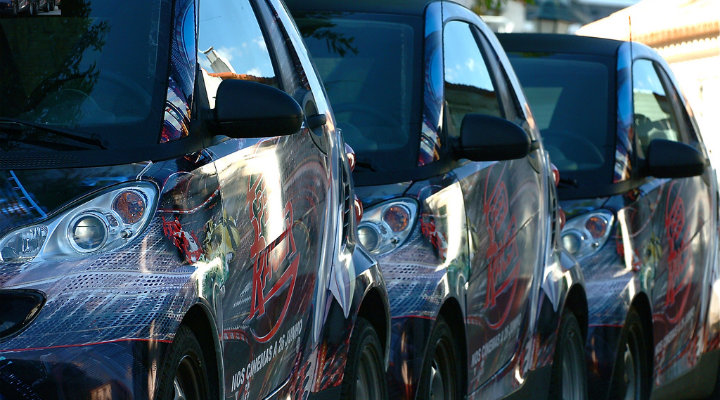Update: 25 January 2014
An Introduction to Hybrid Cars
Hybrid cars take conventional motoring technology and combine it with an electric propulsion system, hence the term ‘hybrid’. These vehicles have lower emissions, help you save on fuel costs, and come with a government rebate for hybrid and electric cars assembled in Malaysia
Update (25 Jan 2014):
To be clear, hybrid cars not able to achieve the zero emissions rate that their all-electric counterparts do. Still, they generally produce lower emissions than its petroleum-based cousins, and they last longer than their electric counterparts. Although all-electric cars might be common place in the future, they are still not nearly as practical as petroleum-based cars.
All the same, hybrid cars are an appealing temporary solution; they combine the main advantages of both electric and petroleum vehicles. We’re lucky that the Malaysian market offers consumers a decent selection of hybrid cars.
SEE ALSO:
- Malaysia Ends Tax Break for Hybrid and Electric Cars Imported Completely Built
- 5 Popular Hybrid Cars Available in Malaysia
The Role of Hybrid Cars in Malaysia
Hybrid cars have already been available in the local automotive market for a period of time. As a result, more hybrid vehicles have made their way into more owners’ hands than electric cars.
The tax exemption for hybrid and electric cars imported completely assembled into the Malaysia ended 31 December 2013. Now the tax break only applies to hybrid and electric cars assembled in Malaysia, called CKD (Completely Knocked Down).
For those who are interested in buying a hybrid car in Malaysia, the selection is much larger than that of electric cars. Take note that the government tax exemption only applies to hybrid cars below 2000cc. Here is a list of some of the models available in the Malaysian market:
- Audi A6 Hybrid 2.0: RM280,000
- BMW Active Hybrid 5 3.0: RM648,000
- BMW Active Hybrid 3 3.0: RM538,000
- Honda Jazz Hybrid 1.3: RM92,187
- Honda Civic Hybrid 1.5: RM116,715
- Honda Jazz Hybrid 1.3 CKD: RM87,417
- Lexus LS 600h L 5.0 V8: RM976,699
- Lexus GS 300h: RM536,800
- Lexus RX 450h 3.5 V6: RM 525,000
- Lexus ES 300h: RM 353,000
- Lexus IS 300h 2.5: RM 383,000
- Lexus CT 200h 1.8: RM 168,000
- Nissan Serena Hybrid 2.0 Highway Star: RM149,000
- Porsche Panamera 3.0 S Hybrid: RM910,000
- Porsche Cayenne 3.0 S Hybrid: RM740,000
- Toyota Prius c 1.5: RM 94,607
- Toyota Prius c 1.5 TRD Sportivo: RM 101,115
- Volkswagen Touareg Hybrid 3.0 V6: RM616,888
(Note: Prices and models obtained from LiveLifeDrive.com)
Hybrid cars are much more fuel efficient than conventional cars. For example, they use regenerative braking (similar to electric cars) to reroute electric energy back into the battery packs. This simple mechanism improves fuel efficiency and is better for the environment. Additionally, when a hybrid car is in ‘Park’ mode or is stationary at a traffic lights, it can switch from using gasoline to using the electric battery pack. Hybrids can typically achieve the same miles to the gallon as electric cars do but with even less energy consumption. Even so, different hybrid models from different manufacturers will demonstrate some variations in their performance benchmarks.
Practicality of Hybrid Cars
Despite their smaller and more eco-friendly design, hybrid cars require maintenance services, similar to that of regular vehicles. After all, half of the engine functions using gasoline. Maintenance costs should be no more expensive than what you would pay to maintain a conventional vehicle.
Another advantage of hybrids, however, is that certain parts will show less wear and tear thanks to its electric and conventional combination. At the same time, it is worth keeping in mind that the cost of replacing some hybrid cars parts can be staggeringly high (e.g. regenerative braking system and battery pack). Like most rechargeable battery packs, hybrid car batteries will typically need to be replaced after 8-10 years of use.
Unlike electric cars, you don’t need to worry about allocating time for recharging a hybrid car. Standard hybrid cars don’t get charged by plugging into an electrical output. Instead, the combination of the car’s hybrid engine and fuel charges the electric battery.
Takeaways
Hybrid cars may still rely on petroleum but they do use less fuel than conventional cars. By no means are they a complete alternative to petroleum but hybrid cars are a step in the right direction.
SEE ALSO: Electric Cars in Malaysia: An Overview
AND 5 Popular Hybrid Cars Available in Malaysia
Photo credit: pedrosimoes7 / Foter / CC BY
"ExpatGo welcomes and encourages comments, input, and divergent opinions. However, we kindly request that you use suitable language in your comments, and refrain from any sort of personal attack, hate speech, or disparaging rhetoric. Comments not in line with this are subject to removal from the site. "
























Checkout the Toyota Prius C, it is pretty affordable sitting in at RM97k for a new hybrid
I’m tempted to buy a hybrid car myself . they seem to keep getting better and better! just wish they cheaper !